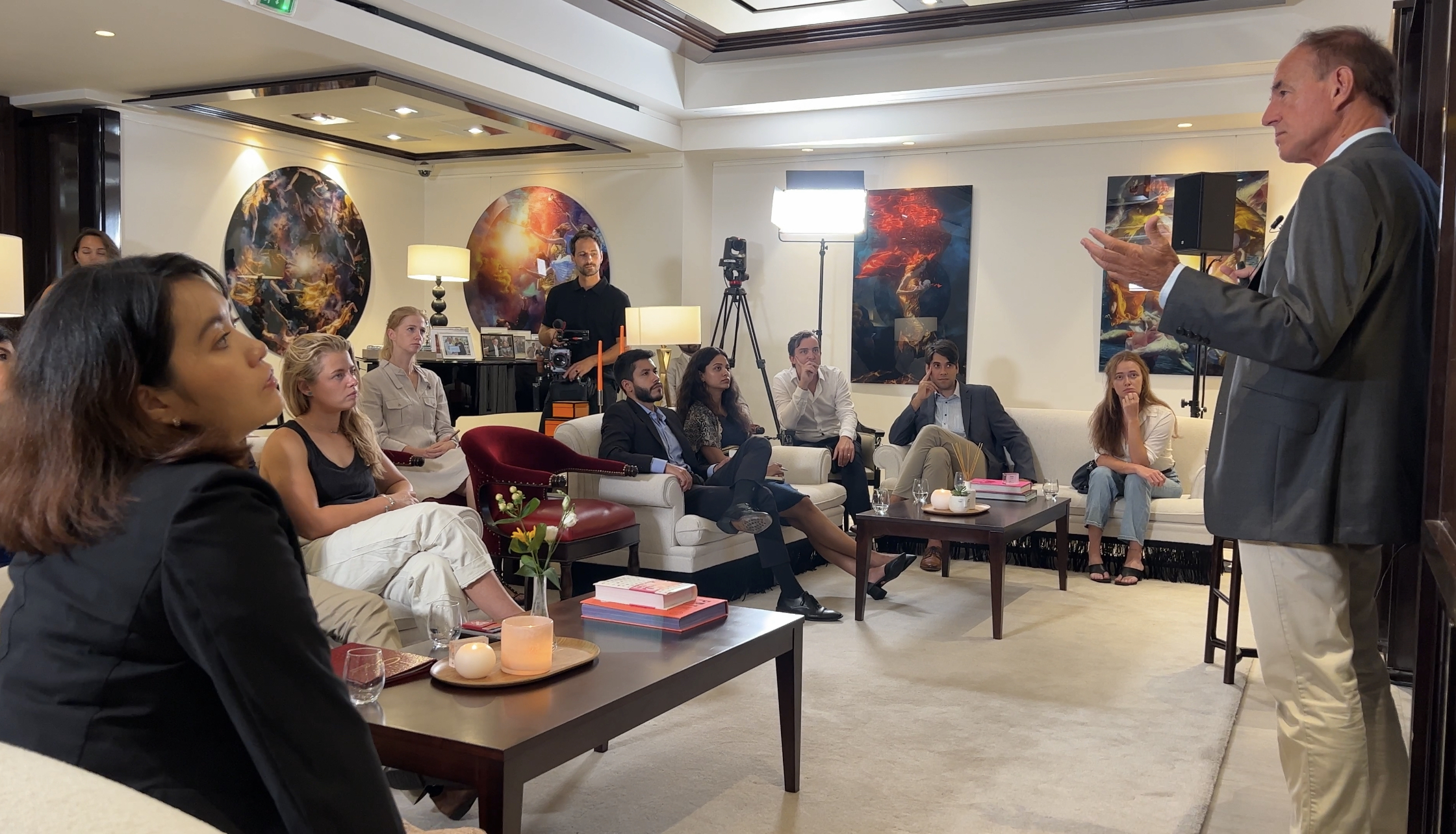
In conversation with Marco Lambertini
Food for thought
On Wednesday, July 5th, the members of the cohort were privileged to learn from Marco Lambertini, the former Director General of WWF International, now Special Envoy. The masterclass centered around the pressing topic of biodiversity and its crucial importance in our world today. Lambertini's insights shed light on the interconnections between humans and nature, highlighting the need for collective action.
Lambertini began the masterclass by providing a comprehensive overview of the state of biodiversity worldwide. He emphasized the significant shift taking place in people's perceptions, where the understanding of the intricate relationship between humans and nature is gaining prominence. Lambertini expressed his belief that protecting nature goes beyond the preservation of majestic creatures such as tigers, elephants, whales, or butterflies...
He passionately conveyed, "[protecting nature] is actually about the future of our children as well and that interconnection. It is not anymore either/or.
Nature versus development is such a toxic, unhelpful dichotomy and controversy. It makes no sense. We are all part of the same planet, we are all part of nature, we are all dependant on nature. And we are finally beginning to be less arrogant and to understand that we are so vulnerable, as much as a tiger, as an elephant, as a whale or as a butterfly."
This realization is essential for driving collective action and finding sustainable solutions to the biodiversity crisis.
Following his enlightening talk, we had the opportunity to delve deeper into his thoughts during an exclusive interview:
Q: How do you envision a true effective leader?
A leader is somebody with a purpose. The leaders that are part of the Re.Generation programme are leaders with purpose, and that makes them different, it makes them agents for change.
Q: How do programs like this contribute to the pursuit of positive change and impact?
Programmes like this are, in my opinion, fundamental in bridging the gaps. All these different young leaders come from different sectors, different countries, and in fact, different realities. And that’s the power of this group.
They have a diversity of experiences, of origins, of journeys, but a common purpose: Leadership. That is why they bonded straight away, and why they learn a lot from each other.
Q: How do you leverage your unique skills, experiences, and passion to make a meaningful impact in the world?
It is very important that people with the same purpose, passion and goal connect because it is a hard game, a very hard challenge. The trends that we are facing, the consequences we are facing are, I can’t think of any other word but, terrifying. By supporting each other, stimulating each other, motivating each other - and I think that is what I felt today during the discussion, there is a lot of hunger for motivation, for hope, for believing in a better future, and I sometimes feel that younger generation are suffering a little bit from anxiety for a future that is not looking great. And I tried my best today to inject a sense of : it is important that we continue to strive for a big change agenda and at the same time, a transformation that leads to a better future. Even if the outlook is demoralising sometimes, there is still hope, and particularly in the environmental sphere, nature is very resilient. If you give nature a chance, she will come back, and with that all the benefits that she brings to us.
Q: Tell us one word that defines your vision for a regenerative future?
Transition. Because we are already a society in transition, transition culturally, transition socio-economically towards a more sustainable future, we know we need to go in that direction. And we’re beginning to move in that way. Speed and scale of that transition will make the difference between failure or success. The real obstacle is that any transition implies understanding the final destination. There is always a feeling of uncertainty, because you know the situation today, but you are still uncertain and cautious about moving away from it towards a more uncertain destination. So, clarifying the destination accompanying the transition and making sure the transition doesn’t leave anybody behind is the way to overcome obstacles.
Marco Lambertini started his work with WWF as a youth volunteer, in his native Italy. From 2014 to 2022, he led WWF global Network with over 60 years of environmental conservation successes, 6 million financial supporters, 35 million followers on social media and activities in over 100 countries, running 3000 local projects per year. M. Lambertini's experience and career range from ecological field research to high level advocacy and international policy, integrated conservation and development projects in many countries. In his new role, he respresents WWF at global events and leads the Nature Positive Initiative.